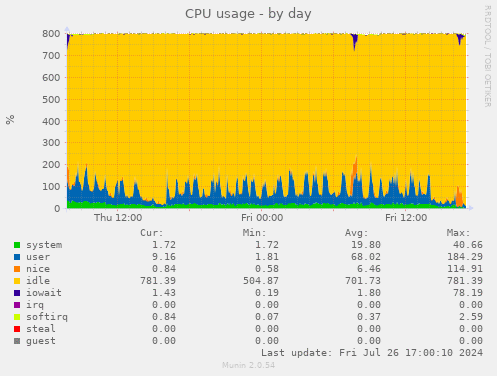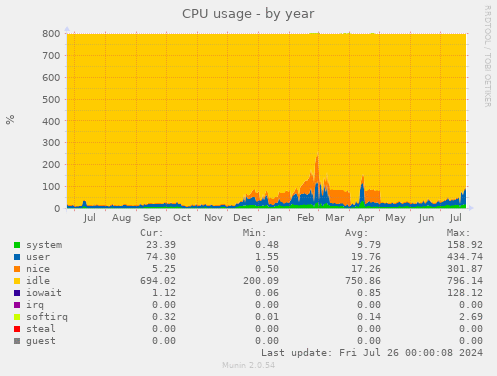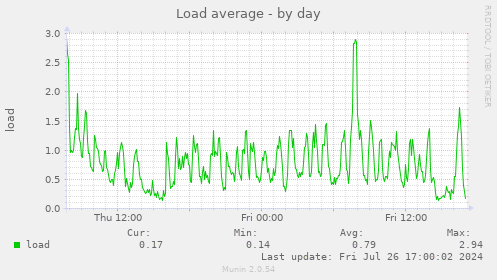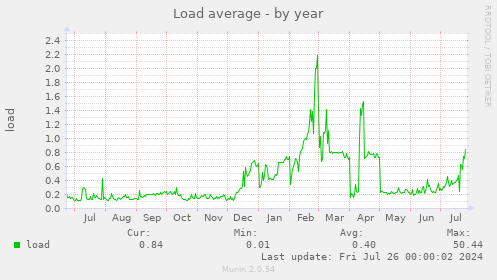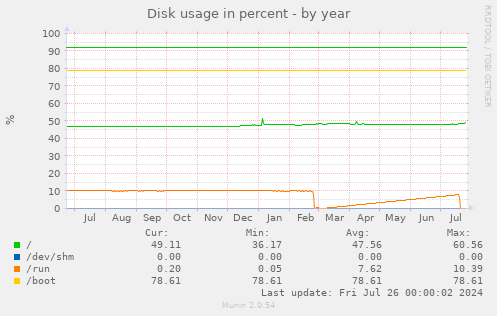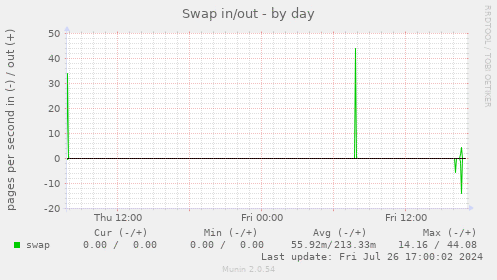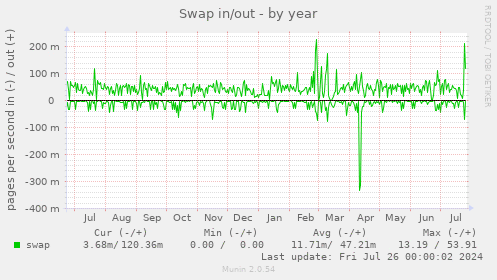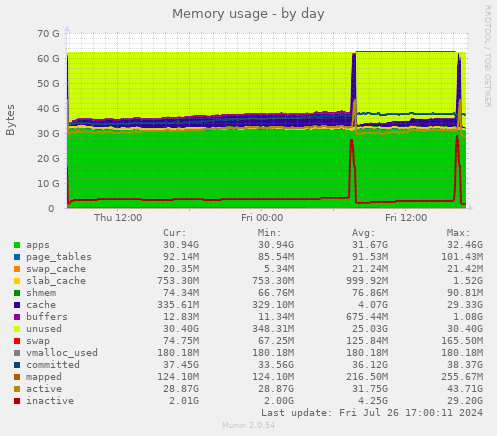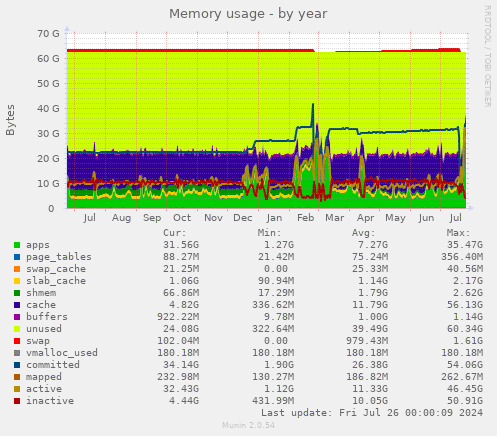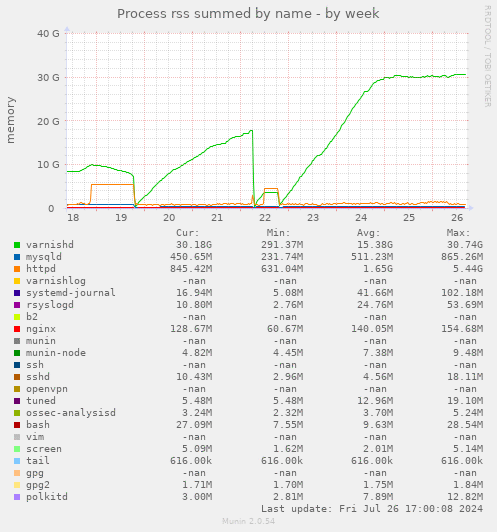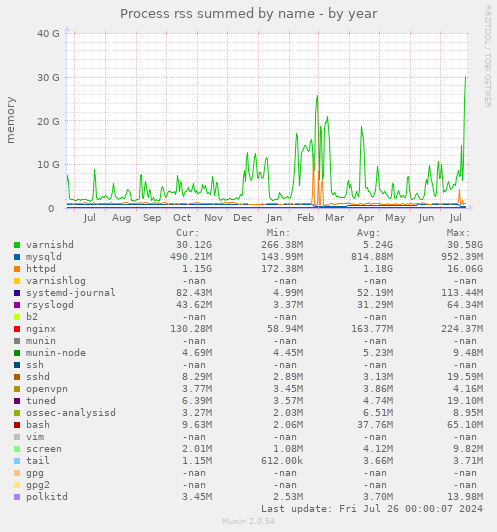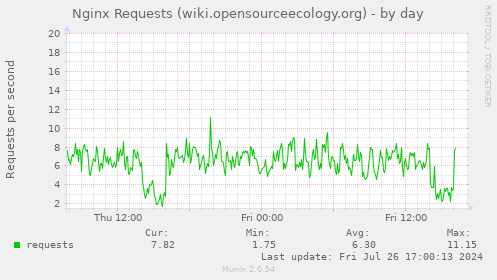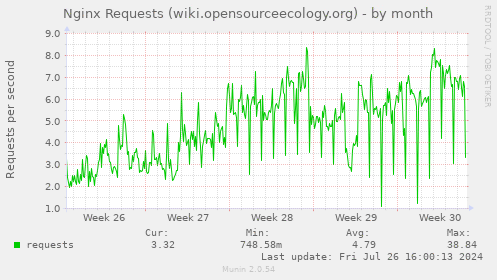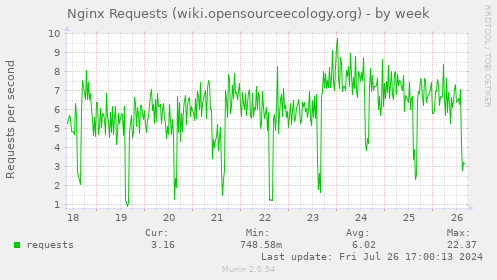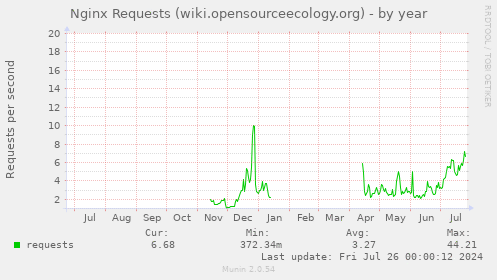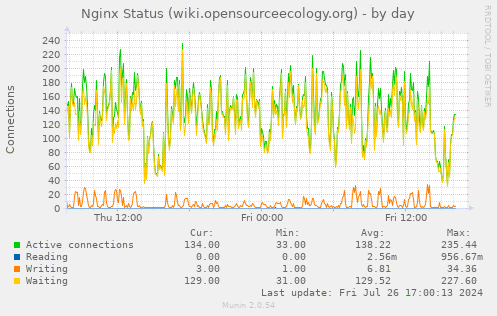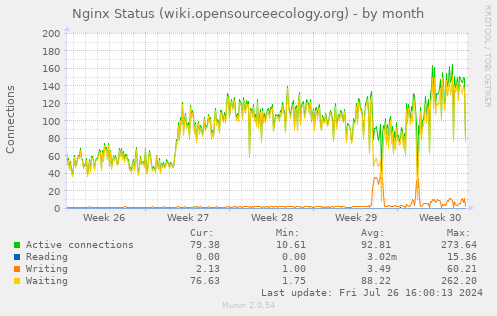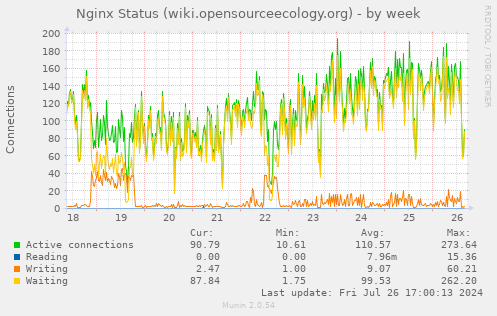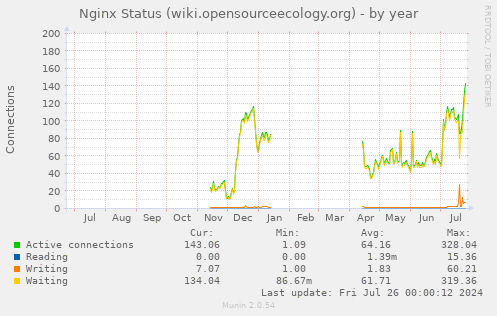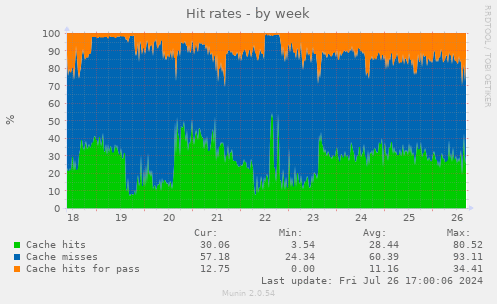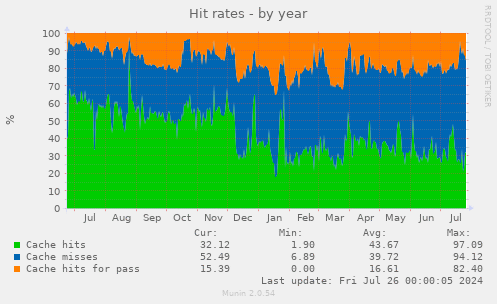Hetzner3
This article is about the migration from "Hetzner2" to "Hetzner3".
For more general information about the OSE Server, you probably want to see OSE Server.
Initial Specifications Research
Because hetzner2 ran on CentOS7 (which was EOL'd 2024-06-30), Marcin asked Michael in July 2024 to begin provisioning a "hetzner3" with Debian to replace "hetzner2".
Munin
I (Michael Altfield) collected some charts from munin to confirm my understanding of the server's resource needs before purchasing a new dedicated server from Hetzner.
CPU
In 2018[1], I said we'd want min 2-4 cores.
After reviewing the cpu & load charts for the past year, load rarely ever touches 3. Most of the time it hovers between 0.2 - 1. So I agree that 4 cores is fine for us now.
Most of these auctions have a Intel Core i7-4770, which is a 4-core + 8 thread proc. That should be fine.
Disk
Honestly, I expect that the lowest offerings of a dedicated server in 2024 are probably going to suffice for us, but what I'm mostly concerned-about is the disk. Even last week when I did the yum updates, I nearly filled the disk just by extracting a copy of our backups. Currently we have two 250G disks in a software RAID-1 (mirror) array. That give us a useable 197G
It's important to me that we double this at-least, but I'll see if there's any deals on 1TB disks or larger.
Also what we currently have is a 6 Gb/s SSD, so I don't want to downgrade that by going to a spinning-disk HDD. NvME might be a welcome upgrade. I/O wait is probably a bottleneck, but not currently one that's causing us agony
Memory
In 2018[1], I said we'd want 8-16G RAM minimum. While that's technically true, we currently have 64G RAM. Most of these base cheap-as-they-come dedicated servers in the hetzener auction page have 64G RAM.
We use 40G of RAM just for varnish, which [a] greatly reduces load on the server and [b] gives our read-only visitors a much, much faster page load time. While we don't strictly *need* that much RAM, I'm going to make sure hetzner3 has at least as much RAM as hetzner2.
Nginx
Varnish
